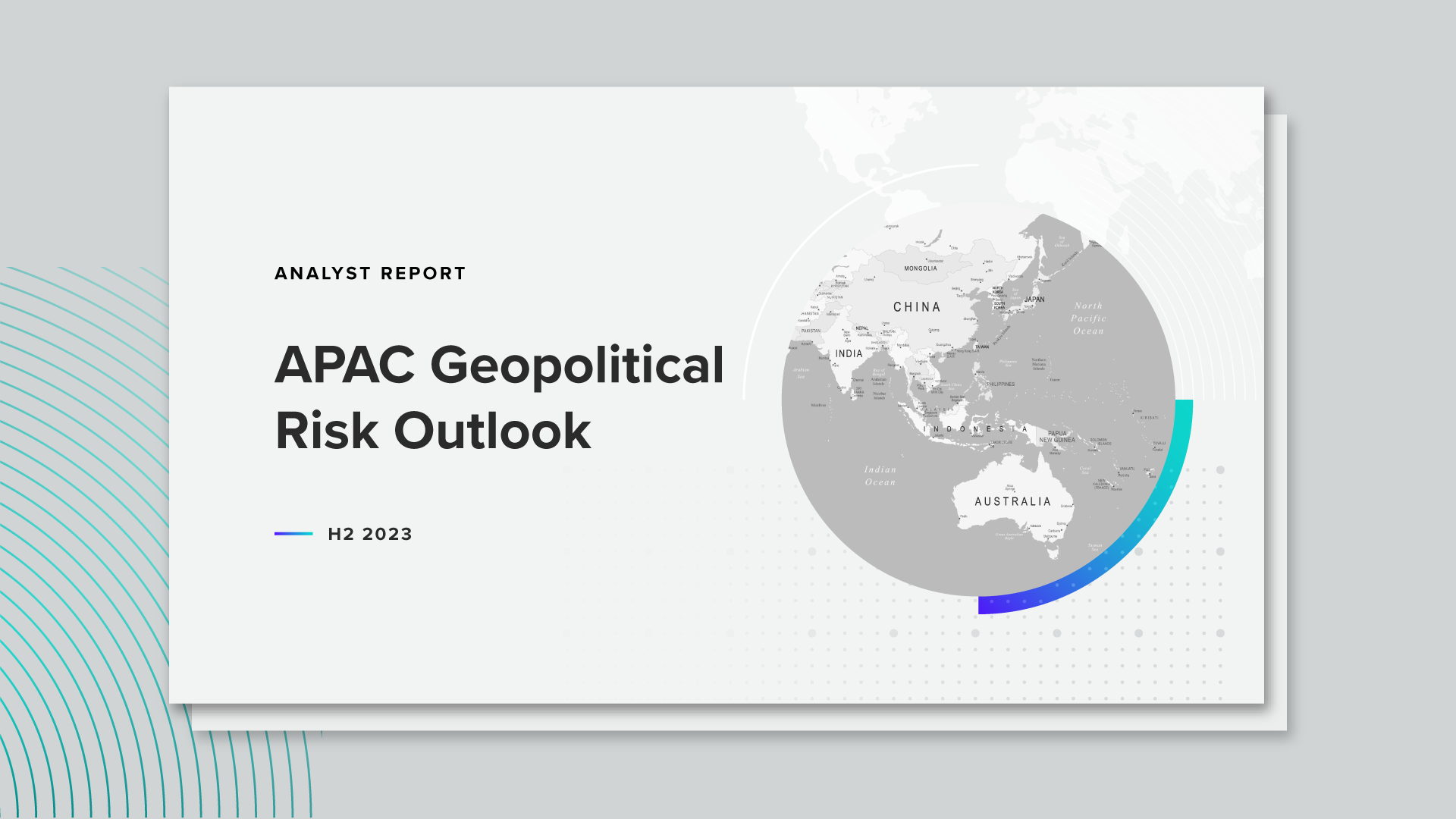How Chinese Study Abroad Preferences Have Changed Since the Pandemic

Key Takeaways
Enrollments of Chinese overseas students have fallen since the pandemic, especially in the United States, limiting exchange ties at a critical geopolitical moment.
While our research shows that the United States remains a top choice for Chinese overseas students, other nations have closed the gap: A growing preference for staying closer to home has led to the emergence of Singapore as a top destination.
Our data suggests political concerns and fears about safety and gun violence may be tarnishing U.S. universities in the eyes of Chinese students.
Institutions contending with these dynamics must become more proactive in their messaging and recruitment, taking explicit measures to make Chinese students feel welcome, wanted and safe.
Prestige continues to be the primary appeal of U.S. study, posing risks for less renowned institutions that enroll the bulk of Chinese overseas students and are often financially reliant on them.
Such universities should leverage recovering enrollment from other countries to help diversify their student bodies and de-risk from an overreliance on Chinese students for tuition dollars.
Sign up to get our latest data and analysis on how business, politics and economics intersect around the world.
The pandemic deterred Chinese students from studying abroad more than most
Prior to the pandemic, 1.09 million Chinese nationals pursued tertiary studies abroad, accounting for roughly 1 out of every 6 students globally who did so. When the pandemic arrived in early 2020, falling enrollments cost global universities millions in tuition dollars and severed critical cultural links between China and the world.
Those hoping for the return of Chinese students en masse after Beijing lifted pandemic-related travel restrictions in January 2023 have had to temper their expectations. Although China has not released outbound enrollment figures since 2020, enrollments fell 29% in the United States — the most popular destination for Chinese students — between January 2020 and January 2023. China and the world have changed a great deal in the interregnum: Cultural, political and economic shifts have impacted Chinese enthusiasm for overseas study and related priorities.
With enrollments continuing to decline, by March 2023 China was no longer the largest source of international students studying in the United States for the first time in more than a decade. While this could have troubling long-term implications for U.S.-China relations, rebounding international enrollments overall — including outsize growth among Indian students — offers a lifeline to universities looking to diversify their international reach and de-risk from an overreliance on Chinese students.
Despite admissions offices’ modest forecasts, there may be cause for optimism
While Chinese enthusiasm for foreign study fell during the pandemic, the rebound has already begun. Less than a third of Chinese adults (30%) said they believe parents were “very interested” in sending their children to study abroad in the last year, slightly below the share who said the same when asked about the prior 1-5 years. Shares were 1 percentage point higher when respondents were asked about Chinese parents’ interest in sending their kids to study abroad in the coming year, and 3 points higher when asked about the next 1-5 years. Meanwhile, those who have studied abroad themselves, or with friends or family members who’ve done so, are more enthusiastic about overseas study than the average Chinese adult. Collectively, these trends suggest a slightly optimistic outlook on the recovery of Chinese interest in studying abroad.
Chinese Adults Expect Enthusiasm for Foreign Study to Increase in the Coming Years
Fewer Chinese students are choosing U.S. universities, preferring nearer destinations like Singapore
Prior to the pandemic, the United States was the top scholastic destination for young Chinese, accounting for nearly a third of all outbound students and more than double the number studying in the United Kingdom, the next most popular choice. Australia and Canada rounded out the top four destinations for Chinese overseas students.
According to our data, the United States remains the most popular destination for foreign study, albeit by a small margin. When Chinese adults were asked to select three countries they would most recommend for foreign study, 29% said the United States, followed by 28% who said the United Kingdom.
Yet contrary to historical preference, Singapore took the third spot, recommended by 23% of respondents, compared with 21% who picked Australia. This may reflect a growing preference to stay closer to home that could spell trouble for U.S. universities hoping for a rebound in Chinese foreign students and their tuition payments.
Specific demographics at scale: Surveying thousands of consumers around the world every day powers our ability to examine and analyze perceptions and habits of more specific demographics at scale, like those featured here.
Why it matters: Leaders need a better understanding of their audiences when making key decisions. Our comprehensive approach to understanding audience profiles complements the “who” of demographics and the “what” of behavioral data with critical insights and analysis on the “why.”
Beyond its proximity to China, Singapore offers a combination of well-regarded English-language education paired with relative cultural and political familiarity, given its high proportion of ethnically Chinese residents, its increasingly close relations with China and its more conservative political system. Singapore’s growing reputation as a destination for Chinese expatriates could also be influencing these preferences, especially among students with family ties to the city-state.
Singapore Emerges as a Top Study Abroad Destination Among Chinese Respondents
These expectations are borne out by our findings. Those who recommended studying in Singapore were most likely to say this was driven by its proximity to China, followed closely by the quality of its education (23% and 22%, respectively).
Prestige remains U.S. higher education’s calling card
For those recommending study in the United States, prestige was the main impetus at 35%, while 1 in 5 cited the quality of education. All other reasons polled below 10%. In fact, the prestige of U.S. schools was the single largest driver of foreign study preference among respondents recommending any country for any reason, highlighting the power of U.S. higher education as a brand and its significance as a source of American soft power.
At the same time, this also points to the extent to which the pull of the United States as an education destination is largely concentrated in the allure of its most selective institutions, which enroll comparatively few Chinese students. While elite U.S. universities will likely continue to attract applications from China’s top students, this may bode ill for the less selective schools that enroll the bulk of China’s overseas students and are far more dependent on their tuition dollars — meaning they have the most to lose from a downturn in enrollment.
Education quality and school prestige were also the top reasons to recommend study in the United Kingdom, with a quarter of respondents saying each factor had driven their preference.
Despite tensions, political considerations benefit Australia most among English-speaking destinations
Interestingly, while 23% of respondents recommending study in Australia cited the quality of education in the country, the second largest share (15%) cited political considerations. Given the sour state of U.S.-China relations, this could speak to an outsize preference for Australian universities among Chinese adults who studied abroad or had friends or family members who did so. Among native English-speaking nations, Australia saw the highest share of respondents saying they had recommended the country for political reasons.
Sino-Australian relations are far from warm, but recent months have seen improvements. At present, the state of U.S.-Chinese relations may simply be taking up more media and state narrative oxygen, making Australia seem like a friendlier option by comparison, especially given its geographic location and lower cost relative to America. To that end, proximity was the fourth most common reason Chinese adults recommended Australia at 13%, just one point behind cost. For most countries, a desire to emigrate was least likely to influence a study abroad recommendation.
Prestige Drives Chinese Interest in U.S. Study, While Safety Concerns Give Pause
Limited job opportunities are dampening enthusiasm for studying in America
A lack of career opportunities was the most common reason Chinese adults cited for not recommending the United States as a destination for overseas study. The difficulty of obtaining a U.S. work visa after graduation, along with restrictive visa policies in the last few years aimed specifically at Chinese nationals, have likely diminished the appeal of U.S. study, undercutting some of the soft power benefits of an American education. A more open employment environment for fresh graduates would benefit universities around the world, and especially those in the United States, but the current political climate makes this unlikely.
More broadly, a lack of career opportunities was the primary reason respondents cited for not recommending overseas study in a given country. Employment concerns are likely top of mind given the record unemployment among young Chinese, as students consider a costly investment in foreign education as a potential route out of the employment morass in their home country. To this end, Canada was the English-speaking country where respondents were least likely to cite limited career opportunities as a strike against, speaking to the comparative advantage of Canada’s more open employment landscape and its concerted push to attract foreign talent.
Safety concerns loom large for those recommending against U.S. study, while cost and immigration hopes are minor deterrents
Distance from China was the next most common reason for recommending against U.S. study (18%), followed by safety and security concerns at 15%. Notably, the United States was the country for which respondents were most likely to cite safety and security as a reason to study elsewhere. Chinese studies have noted that safety concerns — and particularly fears of gun violence — are a major reason the United States has begun to lose its once-unparalleled appeal as the top destination for Chinese students. Against this backdrop, universities should do more to promote the safety of their campuses and communities to prospective Chinese students.
At the same time, immigration ranked last on the list of Chinese respondents’ concerns, just below tuition and expenses. Despite the high costs associated with U.S. higher education, just 5% of respondents said their recommendation against studying in America was driven by cost concerns. Such worries may become more pressing, however, as China’s economic recovery continues to stall.
The impact of politics on Chinese overseas study in the United States
While university administrators may fret about the dour state of U.S.-China relations dulling Chinese students’ desire to study abroad and impacting tuition payments, they can take heart that a plurality of Chinese adults do not see geopolitics as reason to sever educational ties: 40% believe Chinese students should still study abroad in the United States even when relations are poor, compared with just a third who said the opposite.
Those with any previous study abroad experience or connections are even more likely to agree that politics should not get in the way of a foreign education, with 50% of those who studied abroad anywhere, or with friends or family who did so, in agreement. Shares rise to 59% among those who previously studied in the United States, or whose friends or family did so. This speaks to the extent to which foreign study could soften political views or ideological intransigence, creating the opportunity for meaningful cultural and educational encounters that will likely make people more open in the future — though some of this finding may also be a function of self-selection.
Returning students can help improve Sino-American ties
To this end, 17% of Chinese adults believe students returning from study in the United States can help improve U.S.-China relations “a lot,” while a majority (55%) believe such students can help improve relations at least a little. This figure rises to 59% among those who studied overseas anywhere, or who have friends or family who did so, and exceeds two-thirds among those who studied in the United States specifically, or whose family or friends did so (69%).
Conversely, only 9% of Chinese adults think that studying in the United States could hurt U.S.-China relations. Although this figure rises to 11% among those with direct or indirect overseas study experience anywhere, it falls to just 5% among those who’ve studied in the United States specifically, or whose friends or family have.
A Plurality of Chinese Think Poor Bilateral Relations Should Not Impact Study Abroad Decisions
International education can help thaw frosty relations, but not if students are frozen out
Studying abroad is clearly a powerful opportunity for both students and their countries, with short-term economic implications and longer-term political significance. Foreign students provide a critical bridge between nations and can potentially influence bilateral perceptions and dialogue over the long term. Yet this is only possible if study abroad opportunities are preserved, and if the United States manages to maintain its broad appeal to Chinese students.
Therein lies a troubling paradox: The poor state of U.S.-China relations is undoubtedly impacting the study abroad preferences of Chinese young people, yet such opportunities potentially hold a key to improving bilateral ties.
The future of Chinese overseas study
The COVID-19 pandemic has significantly altered the global economic and political landscape, with major impacts in international education as well as its specific economics. As China’s economy stalls and the country becomes more politically isolated, this may further affect the foreign study prospects of its millions of post-secondary students, especially their ability and desire to study in the United States. While our data indicates that Chinese interest in overseas study has rebounded somewhat, prospects remain worrisome, and universities can no longer rely on the reputation of U.S. higher education alone to attract Chinese students en masse.
While little may be done to change preferences for specific destinations, universities can do more to actively recruit Chinese students and make them feel welcome and wanted, whatever the political climate. Admissions offices, for example, should consider emphasizing the safety of their campus and community in all international messaging.
Simply put, universities that have grown to rely on a yearly influx of Chinese students will have to be more intentional and proactive in their recruitment going forward if they hope to keep Chinese tuition dollars flowing. If they are to succeed, they may need a little help from Washington and Beijing. At the same time, much like many multinationals, global and especially U.S. universities would do well to see this enrollment crisis as an opportunity to de-risk from China, facilitated by the rising value of other talent-rich nations like India.
Scott Moskowitz is senior analyst for the Asia-Pacific region at Morning Consult, where he leads geopolitical analysis of China and broader regional issues. Scott holds a Ph.D. in sociology from Princeton University and has years of experience working in and conducting Mandarin-language research on China, with an emphasis on the politics of economic development and consumerism. Follow him on Twitter @ScottyMoskowitz. Interested in connecting with Scott to discuss his analysis or for a media engagement or speaking opportunity? Email [email protected].
Rahul Choudaha is the managing director of higher education at Morning Consult, where he conducts research, authors analyst notes and advises leaders in higher education on how to apply data-driven insights to make better business decisions. Rahul has given over 200 presentations at professional conferences and has been quoted over 300 times in global media. He holds a doctorate in higher education from the University of Denver.
For speaking opportunities and booking requests, please email [email protected].


